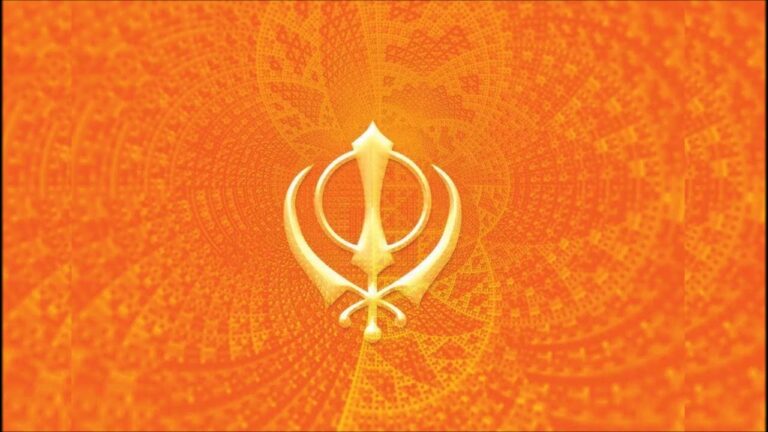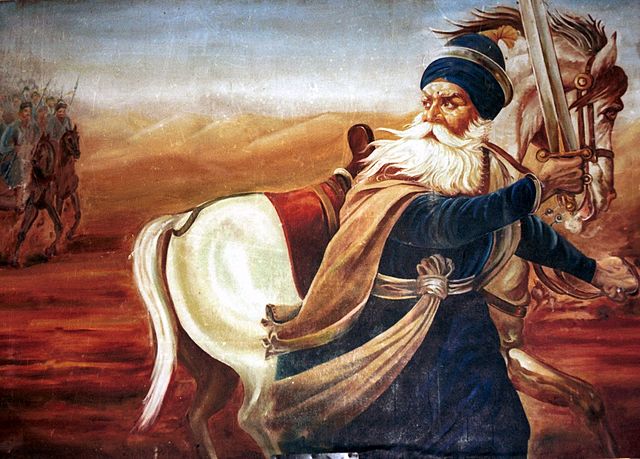Meaning
Sikh Heritage
Kaur is a Punjabi term that holds deep significance within Sikh culture. It translates to “princess” or “noblewoman,” signifying honor, dignity, and spiritual strength.
The name’s origins can be traced back to ancient India, where it was bestowed upon women of noble lineage and high social standing. However, within Sikhism, Kaur transcends its traditional connotations of royalty.
Guru Gobind Singh Ji, the tenth Sikh Guru, instituted the Khalsa brotherhood in 1699, a revolutionary act that elevated the status of all Sikhs regardless of their caste or birthright. He bestowed upon initiated Sikh women the name Kaur, signifying their equal spiritual stature and inherent royalty within the Panth (Sikh community).
By adopting the suffix “Kaur,” Sikh women identify themselves as equals in the divine sight, united with their brothers by the grace of Guru Nanak Dev Ji. They embrace a life of service, courage, and devotion to their faith.
The name Kaur represents more than just a title; it embodies the Sikh ideal of equality, justice, and spiritual enlightenment. It serves as a constant reminder of the Khalsa’s commitment to living an ethical and purposeful life.
Today, Kaur is widely recognized as a symbol of strength and empowerment within the global Sikh community. It represents a powerful legacy of female leadership and unwavering faith that continues to inspire generations.
Feminine Empowerment
Kaur, a name deeply rooted in Punjabi culture, transcends being just a moniker; it embodies a profound sense of identity, belonging, and feminine empowerment.
Originating from the word “Kaur” in the Punjabi language, meaning “princess” or “lioness,” the name carries a rich historical significance. It is a title bestowed upon baptized women within the Sikh faith, signifying their spiritual journey, strength, and equality.
The use of Kaur as a given name gained prominence during the 17th century with the rise of Guru Gobind Singh Ji, the tenth Sikh Guru. He emphasized the importance of gender equality and established the Khalsa Panth, an order of initiated Sikhs where women were recognized as equals to men in faith and practice.
The title “Kaur” became a symbol of this empowerment, representing the inner strength, dignity, and resilience of Sikh women. It signified their commitment to living a life guided by Sikh principles, upholding justice, compassion, and service to others.
Beyond its religious connotations, Kaur has evolved into a powerful identifier for Punjabi women globally, symbolizing heritage, pride, and cultural identity. Many non-Sikh women of Punjabi descent also embrace the name, drawn to its empowering message and connection to their ancestral roots.
The popularity of Kaur as a given name has surged in recent years, reflecting a growing awareness and appreciation for its deep meaning and the values it represents. It stands as a testament to the enduring legacy of Sikhism and its contribution to gender equality and female empowerment.
Origin
Panjabi Roots
- The name Kaur holds a significant place in Punjabi culture and Sikhism.
- It’s not merely a given name but an identifier of lineage, reflecting a profound connection to Sikh identity and values.
- Originating from the Sanskrit word “Kaura,” which signifies “princess” or “queen,” Kaur holds connotations of strength, dignity, and royalty.
- Within the Sikh tradition, it is bestowed upon females who have initiated into the Khalsa, the baptized Sikh community.
- The adoption of “Kaur” signifies a commitment to the Sikh way of life, embracing equality, justice, and service.
- It denotes a sense of belonging to a larger spiritual family, united by their faith and shared principles.
Here’s a deeper look into its meaning and historical context:
Sanskrit Roots
The name “Kaur” draws its essence from the Sanskrit word “Kaura,” which has roots in the Vedic period.
Khalsa Initiation
In Sikhism, initiation into the Khalsa Panth is a pivotal moment in one’s life. During this ceremony, individuals adopt new names signifying their commitment to the Sikh faith and values. For women, “Kaur” becomes an integral part of their identity.
Symbol of Equality
The adoption of “Kaur” signifies that all baptized Sikhs are equal in the eyes of God, regardless of gender, caste, or social status.
Strength and Dignity
The name carries connotations of strength, grace, and dignity, reflecting the ideals upheld by Sikh women throughout history.
Etymology Unveiled
The name Kaur is a revered and deeply rooted surname within Sikhism. Its origins are intrinsically linked to the cultural and historical tapestry of Punjab, India.
In essence, Kaur signifies “daughter” or “princess.” This appellation holds profound significance in Sikh tradition, as it embodies the inherent dignity, strength, and spiritual potential bestowed upon women.
Etymologically, Kaur is derived from the Sanskrit word Kumari, meaning “young unmarried girl” or “maiden.” This ancient root speaks volumes about the cultural reverence for young womanhood in Punjab.
The evolution of Kumari into Kaur reflects the linguistic transformations that occurred over centuries as languages interacted and evolved within the region.
Over time, Kaur transitioned from a simple descriptor to a symbol of Sikh identity. It became associated with the Khalsa Panth, the initiated community of Sikhs, emphasizing their equality and spiritual elevation regardless of gender.
Today, Kaur serves as a powerful reminder of the rich heritage and unwavering commitment to social justice that defines Sikhism. It is a name borne by generations of strong, resilient women who have played pivotal roles in shaping Sikh history and culture.
History
Evolution Through Time
The name Kaur is deeply rooted in Sikh tradition, signifying a distinct lineage and spiritual identity within Punjabi culture. It’s not simply a given name; it holds a profound historical and cultural significance.
Originating from the Punjabi word “Kaur,” meaning “princess” or “daughter,” it became intrinsically linked to the Khalsa, the baptized community of Sikhs established by Guru Gobind Singh in 169 The adoption of the surname “Singh” (meaning “lion”) for males and “Kaur” for females marked a pivotal moment, signifying their equality, spiritual strength, and commitment to the Sikh faith.
Prior to the Khalsa’s establishment, women in Punjabi society often lacked formal recognition and social standing. However, with the introduction of “Kaur,” Guru Gobind Singh bestowed upon them a title that signified honor, respect, and empowerment. The name elevated the status of women within Sikhism, acknowledging their inherent value and right to spiritual equality.
The historical evolution of the name “Kaur” is closely intertwined with the history of the Sikh faith itself. As Sikh communities spread beyond Punjab, the name gained prominence across India and the diaspora. It became a symbol of shared identity and heritage, connecting generations of Sikhs across borders and cultures.
Beyond its religious connotations, “Kaur” has also evolved into a cultural identifier within Punjabi society. It’s frequently used in literature, music, and art, representing the spirit of resilience, strength, and feminine power.
Cultural Significance
Kaur is a Punjabi surname, primarily associated with Sikh identity. It translates to “princess” or “noblewoman,” reflecting a deep-rooted cultural value placed on honor and respect for women within Sikhism.
The name’s historical significance is intertwined with the rise of the Khalsa Panth, the initiated body of Sikhs established by Guru Gobind Singh in 169 Guru Gobind Singh emphasized gender equality and bestowed upon women the same spiritual rights and privileges as men.
As part of the Khalsa initiation ceremony, a Sikh is given a new name ending in “Singh” (lion) for men and “Kaur” for women. This signifies their commitment to upholding the tenets of Sikhism and their transformation into spiritual warriors.
The adoption of Kaur as a surname marked a significant shift in societal norms. It empowered women by bestowing upon them a title that reflected their inherent dignity and valor, transcending traditional gender roles.
Over centuries, Kaur has become a widely recognized symbol of Sikh identity and female empowerment, resonating beyond the confines of religious boundaries.
The name’s popularity extends to diaspora communities worldwide, where it serves as a reminder of ancestral heritage and cultural values. It represents not only a historical lineage but also a continuing commitment to equality, justice, and spiritual enlightenment.
- 30 Best B2B Leads Database Providers to Try in 2025 - April 26, 2025
- Best Clay Alternatives for 2025 - April 26, 2025
- Best Lusha Alternatives for 2025 - April 26, 2025


